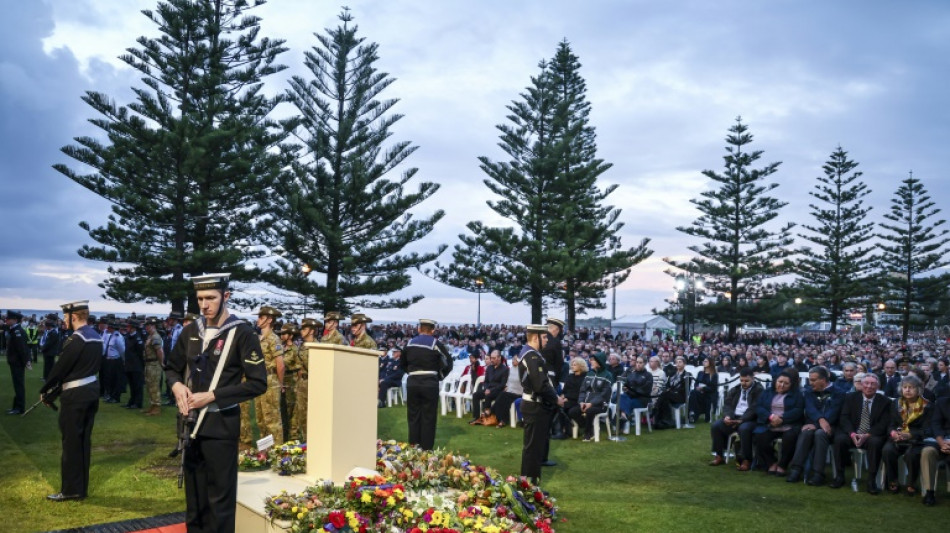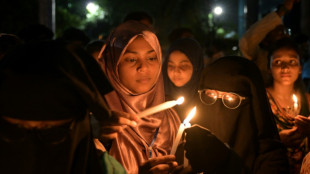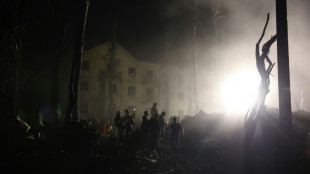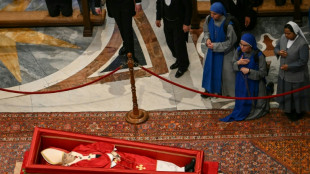

Crowds join Anzac Day services for Australia, New Zealand forces
Crowds of Australians and New Zealanders gathered just before dawn on Friday to observe solemn Anzac Day ceremonies, many of which were held at beaches and war memorials across the two countries to honour their armed forces.
Anzac Day marks the ill-fated World War I landing of Australia and New Zealand Army Corps troops at Gallipoli, in what is now Turkey, in 1915.
Facing dug-in German-backed Ottoman forces, more than 10,000 Australian and New Zealand servicemen were killed in the Allied expedition.
This year marks the 110th anniversary of the landing.
Anzac Day now honours Australians and New Zealanders who have served in all wars, conflicts and peacekeeping operations.
"We who are gathered here, think of those who went out to the battlefields of all wars, but did not return," Australian Prime Minister Anthony Albanese, who attended a service in Canberra, said.
"We feel them still near us in spirit. We wish to be worthy of their great sacrifice."
Melbourne's dawn service was briefly interrupted by hecklers during the Welcome to Country ceremony -- a traditional blessing from a local Indigenous elder before an event.
Afterwards, Defence Minister Richard Marles said the incident was "terrible" and "deplorable", but that it did not deserve any more attention.
"This is a day to acknowledge those who have worn our nation's uniform," he told Channel Nine television.
Victorian police directed one man to leave the event, who they also interviewed "for offensive behaviour", a spokesperson said in a statement.
Meanwhile, New Zealand's Prime Minister Christopher Luxon will attend an Anzac service in Gallipoli.
Britain's King Charles III thanked in a statement the thousands of Anzac troops for their "selfless service in those most difficult and dangerous times".
The annual commemoration comes in the run-up to a May 3 election in Australia, where the most pressing issues for both parties are the cost of living, managing the energy transition and balancing relations with the United States.
The left-leaning government is leading the opposition in opinion polls.
A.Martin--JdB



